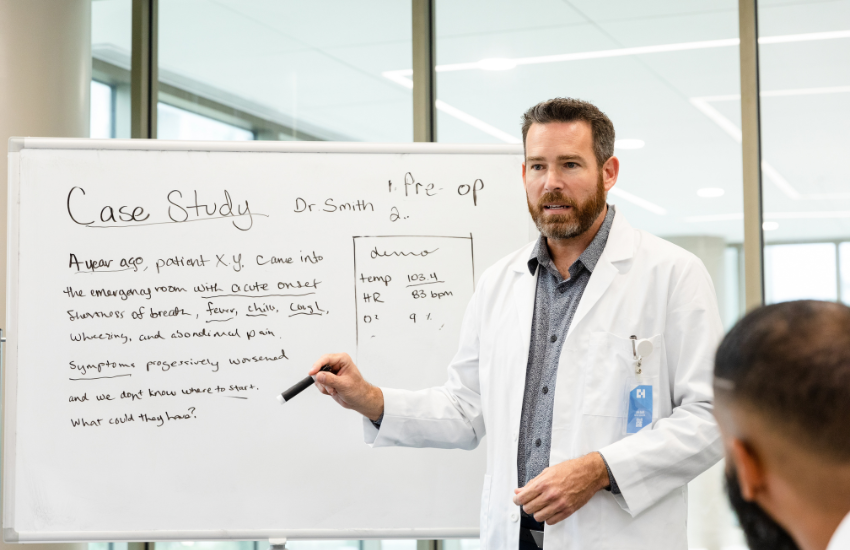Navigating the Tightrope: The 4 Most Challenging Conversations Between Doctors

Bridging the Divide: 5 Reasons Physicians and Hospitals Think Differently
May 13, 2024
The Seven Unspoken Lessons of Being a New Doctor
May 13, 2024In the realm of healthcare, communication is as vital as the treatments we prescribe. Throughout my 15-year journey in coaching healthcare leaders, I’ve observed that some of the most pivotal moments in a physician’s career stem from challenging conversations with colleagues. These discussions, while tough, are crucial for personal growth, professional development, and, ultimately, patient care. Here are the four most difficult conversations your doctor is likely having behind the scenes.
1. Disagreeing on Patient Care Plans
At the heart of every medical decision is the patient’s well-being. However, doctors often face situations where they must disagree with colleagues on the best course of action. Whether it’s the risks of a surgical procedure or the potential benefits of a new treatment, these conversations require a delicate balance of assertiveness, evidence, and empathy. Navigating these discussions while maintaining professional respect and focusing on patient outcomes is a tightrope walk many physicians know all too well.
2. Addressing Performance Concerns
No one enters the medical field to be mediocre. Yet, addressing a colleague’s performance concerns is a conversation that many doctors dread. It’s not just about pointing out mistakes or areas of improvement; it’s about fostering a culture of continuous learning and support. These discussions, when approached with care and constructive feedback, can strengthen team dynamics and enhance patient care.
3. Negotiating Workload and Burnout
The healthcare environment is notoriously demanding, and conversations about workload and burnout are increasingly common. Doctors often find themselves advocating not only for their patients but also for their own well-being and that of their colleagues. Discussing the need for manageable workloads, adequate rest, and mental health support is essential, yet challenging, in a profession that prides itself on endurance.
4. Discussing End-of-Life Care
Perhaps the most emotionally charged conversations among physicians involve end-of-life care decisions. These discussions require a profound understanding of medical ethics, patient wishes, and the emotional toll on families. Balancing the desire to prolong life with the need to ensure the quality of life and dignity in death is a profound responsibility that weighs heavily on all involved.
Each of these conversations presents an opportunity for growth, understanding, and, ultimately, better patient care. As healthcare leaders, fostering an environment where these difficult discussions can take place openly and constructively is paramount. It’s through these challenging moments that we find our strength, refine our approach, and reaffirm our commitment to the noble calling of medicine.Leadership By Design© Coaching Program addresses these challenges in a comprehensive, empathic and effective manner.




